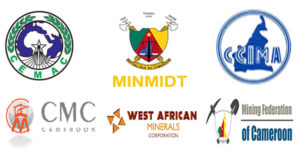Gold Sellers in Africa – Can I Buy Gold from Africa in Grams, Kilograms, and Ounces (24K to 18K)?
Are you looking to buy genuine gold directly from Africa? Whether you’re interested in small quantities like grams and ounces or bulk orders in kilograms, Bonasgold is your trusted partner. With access to some of the richest gold mines in Cameroon and across Africa, Bonasgold offers legal, certified, and secure gold transactions in 24K, 23K, 22K, and 18K gold.
Why Buy Gold from Africa?
Africa is rich in natural resources, and countries like Cameroon, Ghana, Uganda, and South Africa are among the top producers of high-quality gold. Buyers worldwide turn to Africa for:
- Lower costs compared to global markets
- Diverse gold products: dore bars, nuggets, dust, refined bars
- Opportunities for direct sourcing from mining areas
- High purity levels (up to 999.9 for refined gold)
What Gold Products Can I Buy from Bonasgold?
Bonasgold offers the following:
- Gold Dore Bars
- Gold Dust
- Gold Nuggets
- Unrefined Gold Ore
- Refined Gold Bars (1kg, 10 oz, 1 oz)
- Silver Bars
- Rough Diamonds
- Rubies & Gemstones, Peridot (Olivine)
Can You Buy in Grams, Ounces, or Kilograms?
Yes! Bonasgold supports purchases in all units:
- Grams – Ideal for private investors or jewelry makers
- Ounces (Troy) – Standard for global trading and investment
- Kilograms – Perfect for refineries, dealers, and institutions
Whether you’re buying 50g or 50kg, we offer flexible packages and pricing.
What Carat Options Are Available?
Bonasgold offers gold in 24K, 23K, 22K, and 18K purity levels depending on your use (investment, refining, or manufacturing).
Current Gold Prices & Live Chart
For real-time updates on gold rates, visit: Live Gold Price Chart
Legal Compliance and Buyer Protection
Bonasgold operates under strict compliance protocols. Our gold comes with all necessary documentation including:
- Export license
- SKR (Safe Keeping Receipt)
- Assay report
- Past performance records
- CEMAC Buyer’s Permit for regional trade (see: Gold Order Process)
Frequently Asked Questions
1. Can I buy gold online from Africa legally? Yes, Bonasgold facilitates safe online transactions globally. Learn more: How to Buy Gold from Africa
2. Do I need a permit to import gold? Yes. Check out our full guide: CEMAC Buyer’s Permit
3. Which countries can you ship gold to? We ship worldwide. Learn how to import gold to:
4. What are the best ways to buy cheap gold from Africa? Read this: Cheapest Way to Buy Gold Online
5. Can I visit Cameroon to buy gold face-to-face? Absolutely. We arrange secure, face-to-face transactions. Contact us to plan your visit.
How to Order Gold from Bonasgold
Read our guide: How to Order Gold from Cameroon
Or get started by choosing your product:
Contact Bonasgold
Company Name: Bonasgold Mining Corporation
Location: Rue de la gare Ayos, Bertoua, Cameroon
Email: [email protected]
Phone/WhatsApp: +237 675915154
Website: https://bonasgold.net
Contact Person: Atangana Joseph Charles
Explore our full collection here: All Products
Trust Bonasgold – Africa’s Most Reliable Gold Exporter.







